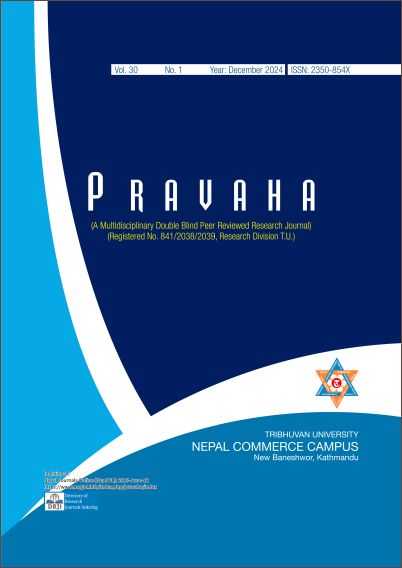Beyond the Classroom: How Practical Experience and Social Networks Shape Entrepreneurial Intention among University Students?
DOI:
https://doi.org/10.3126/pravaha.v30i1.76892Keywords:
Entrepreneurial education, Entrepreneurial intention, Personality traits, Social networks, Practical experienceAbstract
The study examines the determinants affecting entrepreneurial intention (EI) among university students and management faculty in the Kathmandu Valley. Undergraduate and postgraduate students from management faculty actively participating in entrepreneurial education make up the target market. It used a non-probability purposive sampling method to select 388 students actively engaged in entrepreneurial activity or education. A regression analysis was employed to evaluate the influence of Entrepreneurial Education (EE), Personality Traits (PT), Social Networks (SN), and Practical Experience (PE) on Entrepreneurial Intention (EI). The results indicate that EE has a slightly negative correlation with EI (β = -0.053, t = -1.898, p = 0.058), dismissing the hypothesis that EE favourably affects EI. PT exhibits a substantial negative correlation with EI (β = -0.213, t = -4.426, p = 0.000), indicating that specific personality traits may obstruct entrepreneurial intentions. SN exhibits a robust positive correlation with EI (β = 0.366, t = 7.027, p = 0.000), underscoring the significance of social relationships. PE demonstrates the most robust positive correlation with EI (β = 0.809, t = 18.568, p = 0.000), underscoring the significance of practical experience in cultivating entrepreneurial intentions. The findings indicate that, although social networks and practical experience are significant contributors to EI, the adverse effects of entrepreneurial education and personality traits necessitate customized interventions and enhancements in educational curricula.
Downloads
Downloads
Published
How to Cite
Issue
Section
License
© Nepal Commerce Campus, TU
Authors are required to transfer their copyright to the Nepal Commerce Campus, TU.




